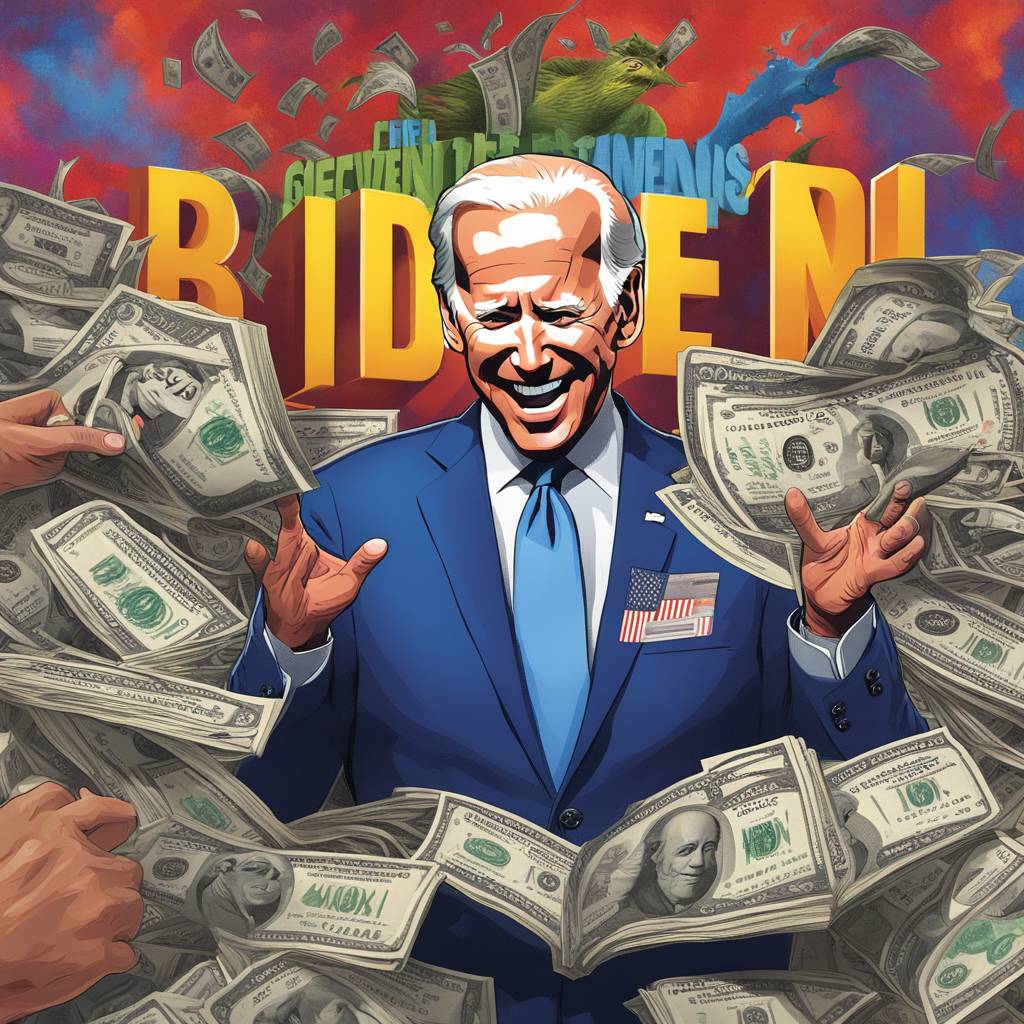President Joe Biden recently signed a $1.2 trillion spending package, finalizing the remaining batch of bills needed to keep the government funded until October 1. This ends a months-long saga of Congress struggling to secure a permanent budget resolution and passing stopgap measures to avert government shutdowns. The bipartisan agreement represents a compromise that neither side fully got what they wanted, but it allows for continued government operations. The Senate passed the budget with a 74-24 vote just hours after the funding deadline, and the House followed suit after resolving a sticking point related to funding for the Department of Homeland Security.
The budget includes six appropriation bills that will fund agencies related to defense, financial services, homeland security, health and human services, and more. Earlier in March, Congress approved $459 billion for the first six appropriations bills, which were less partisan and easier to negotiate. With the government now funded for the rest of the fiscal year, House Speaker Mike Johnson has cleared his plate of one issue, but he may face challenges within his own party. Hardline House Republicans criticized the spending bill and one member, Marjorie Taylor Greene, filed a motion to oust Johnson. This echoes a similar situation in October when former Speaker Kevin McCarthy was removed after striking a deal with Democrats to avert a government shutdown.
Enactment of the budget deal comes after months of negotiations and near-misses on shutdown deadlines. President Biden emphasized the importance of government funding in supporting the economy, national security, and the American people. The signing of the spending package marks a critical step in ensuring continued government operations and avoiding disruptions that could impact the country. The compromise reached by Congress reflects a mix of priorities from both parties, highlighting the challenges of reaching agreement on budgetary matters in a divided political landscape.
The budget deal’s passage also brings relief to federal agencies and employees who faced uncertainty amid the prolonged budget negotiations. Funding for critical services and programs is now secured, allowing agencies to plan and execute their operations more effectively. The trillions of dollars allocated in the budget will support various government functions, from defense to healthcare, demonstrating a commitment to meeting the needs of the American public. The resolution of the budget process represents a significant milestone in government funding and underscores the importance of bipartisan cooperation in addressing key fiscal issues.
While the budget approval represents a significant achievement for Congress and the administration, challenges within the Republican Party could complicate future legislative efforts. The opposition of hardline Republicans to the spending package and their move to challenge House leadership signals potential conflicts within the GOP. As lawmakers navigate these internal dynamics, the focus on governing and addressing pressing national issues may be overshadowed by party disagreements. The fallout from the budget deal may have lasting implications for the Republican Party’s unity and ability to present a cohesive legislative agenda.
In conclusion, the signing of the $1.2 trillion spending package by President Biden marks a significant milestone in government funding, bringing an end to a tumultuous budget process. With agencies funded for the rest of the fiscal year, government operations can continue without disruption, supporting national security, economic growth, and essential services. The compromise reached by Congress reflects the challenges of negotiating budgets in a divided political environment and highlights the importance of bipartisan cooperation in addressing key fiscal issues. Despite the successful passage of the budget deal, internal conflicts within the Republican Party could pose challenges for future legislative efforts, underscoring the ongoing complexities of governing in a polarized political landscape.













